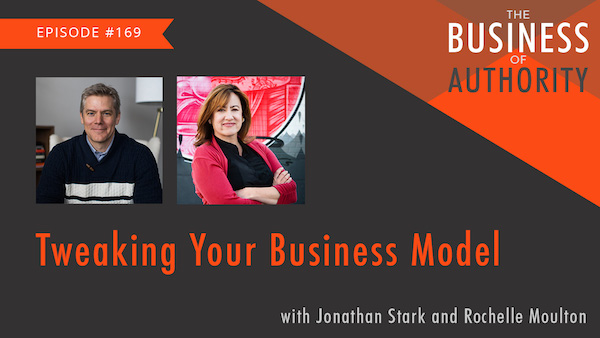Tweaking Your Business Model

So what exactly is a business model anyway—and more importantly, when and how does it make sense to tweak yours?
Jonathan and I tease out the sometimes subtle shifts in your business (and revenue) model as you move away from 100% services to more leveraged product or productized options:
Why providing services (vs. products) may be where you start your business, but not where you necessarily stay.
The impact of turning services into products—leverage—on your business and revenue models.
How to package your expertise in new ways so that the delivery is inexpensive—and morph your client/audience base to reflect the change.
Dealing with the identity shift that happens as you morph your role away from 100% supplying services.
Thinking about your business model when you’re starting “clean” with a brand new idea.
Quotables
“The fundamental proposition here is that services are really expensive to deliver…you’re forced as the seller to set your price high enough that it’s worth doing.”—JS
“If you’re selling expensive services—maybe you have 3-5 clients in any given year. But to do something where you’re selling a $300 product or a $700 product, you’ve got to have a lot more people in your pipeline who can buy this, so it changes…who you reach out to and how you deliver.”—RM
“You write your first book and…monthly or quarterly out of nowhere you get a check—it’s a completely different kind of money.”—JS
“You might find you’re making trivial income from a book, but it’s powering non-trivial income from speaking—which makes you look at your revenue mix (how you’ll make money).”—RM
“Package your expertise in a completely different way—it’s the same expertise—but you’re packaging it in such a way that the delivery is inexpensive.”—JS
“As you as you do each “thing” you’re gonna learn who is your ideal audience for this thing. What do they have in common? What about this makes it really attractive to them?”—RM
“Part of the benefit of doing these little experiments…is it gives you time for your identity to catch up with your brain.”—JS
“Once you start to see leverage, it’s kind of hard to unsee it.”—RM










